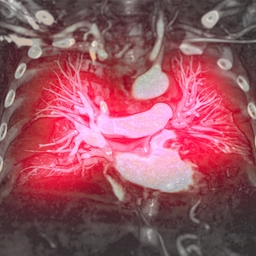Research News from CHOP

Children’s Hospital of Philadelphia Researchers Unveil Key Mechanism in Immune System’s Fight Against Disease
Researchers at Children’s Hospital of Philadelphia (CHOP) and the Perelman School of Medicine at the University of Pennsylvania unlocked important new insights in how the immune system selects the right signals to alert T cells, a vital step in the prevention and treatment of serious illness. The findings were published in the journal Proceedings of the National Academy of Sciences (PNAS).
Children’s Hospital of Philadelphia Researchers Develop New Tool with Potential to Advance Precision Medicine Treatment for Cancer
Researchers at Children’s Hospital of Philadelphia (CHOP) and the Perelman School of Medicine at the University of Pennsylvania developed a new screening technology, Aptamer-based T Lymphocyte Activity Screening and SEQuencing (ATLAS-seq), to better identify antigen-reactive T cells that are more likely to offer greater immune responses against cancer cells.

Children’s Hospital of Philadelphia Researchers Discover that Venous Endothelial Cells Drive Lung Vascular Repair and Regeneration after Illness and Injury
Researchers from the Children’s Hospital of Philadelphia (CHOP) in collaboration with the School of Veterinary Medicine at the University of Pennsylvania, Perelman School of Medicine at the University of Pennsylvania and Vanderbilt University Medical Center found that venous endothelial cells (VECs), a specific type of lung blood vessel cell, can help fix damaged blood vessels in the lungs following lung injury or disease. Their findings were recently published in Nature Cardiovascular Research.
First of Its Kind Gene Therapy Model Offers Hope for X-Linked Sideroblastic Anemia Treatment
Researchers at Children’s Hospital of Philadelphia (CHOP) and the University of Pennsylvania Perelman School of Medicine pioneered a first of its kind gene therapy model that offers a potential breakthrough in treating X-linked sideroblastic anemia (XLSA), a rare congenital anemia caused by mutations in the ALAS2 gene crucial for the synthesis of heme, a key compound in hemoglobin. This study marks the first time researchers studied gene therapy to treat this disease, which the authors underscore could have an impact on a broad spectrum of diseases. The research was published today and featured on the cover of the journal Blood.
Children’s Hospital of Philadelphia Researchers Find Precision Medicine Treatment Delivers Strong Results for Infantile Fibrosarcoma and Other Solid Tumors
Researchers at Children’s Hospital of Philadelphia (CHOP) and the Children’s Oncology Group (COG) found that larotrectinib, an oral drug that stops cancer-cell growth, was highly effective in pediatric patients with newly diagnosed infantile fibrosarcoma (IFS) or other solid tumors that have a neurotrophic receptor tyrosine kinase (NTRK) gene fusion without a known acquired resistance mutation. The study, published today in the Journal of Clinical Oncology, is the first COG trial to test precision medicine in a front-line setting across all different types of solid tumors based on a genetic biomarker rather than histology. It is poised to redefine the approach to treatment for newly diagnosed fibrosarcoma and other solid tumors with the NTRK gene fusion, potentially reducing or eliminating the need for these patients to receive chemotherapy.
New Research from Children’s Hospital of Philadelphia to Transform Standard of Care Across the Globe for Newly Diagnosed Children with B-cell Acute Lymphoblastic Leukemia
Researchers at Children’s Hospital of Philadelphia (CHOP) and the Children’s Oncology Group (COG) announced the results of a Phase 3 study that demonstrated adding the bi-specific T-cell engager, blinatumomab, to chemotherapy for newly diagnosed National Cancer Institute (NCI) standard risk (SR) B-cell acute lymphoblastic leukemia (B-ALL) pediatric patients significantly improves survival outcomes. The results were published today in the New England Journal of Medicine and will be presented at the 66th American Society of Hematology (ASH) Annual Meeting & Exposition on December 8.
Children’s Hospital of Philadelphia Researchers Identify Gene Signature for High-Risk Form of T-Cell Acute Lymphoblastic Leukemia
Study identified a drug for potential use in future precision medicine clinical trials
Children’s Hospital of Philadelphia Study Shows Innovative “Food Pharmacy” Program Benefits Families Living with Food Insecurity
Researchers at Children’s Hospital of Philadelphia (CHOP) found that most patients and their families who reported experiencing food insecurity benefitted from consistent delivery of fresh produce and prepared healthy meals post-hospitalization. The study, recently published in Pediatrics, underscores the need for hospital systems to partner with community-based organizations to address food insecurity throughout the United States.
Children’s Hospital of Philadelphia Researchers Announce New AI Model for Cell Segmentation and Classification
Researchers at Children’s Hospital of Philadelphia (CHOP) announced the creation of a new AI technology called CelloType, a comprehensive model designed to more accurately identify and classify cells in high-content tissue images. The findings were published today in the journal Nature Methods.
CHOP Announces Role in Nationwide NIH Study to Better Understand Escalating Type 2 Diabetes Diagnoses in Children and Teens
Researchers at Children’s Hospital of Philadelphia (CHOP) announced the launch of the initial phase of DISCOVERY of Risk Factors for Type 2 Diabetes in Youth, a nationwide National Institute of Health (NIH) study to address the surge in youth diagnosed with type 2 diabetes over the past two decades.